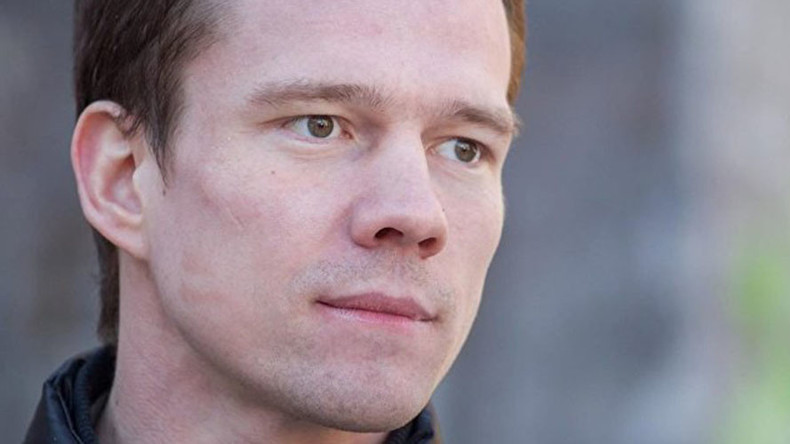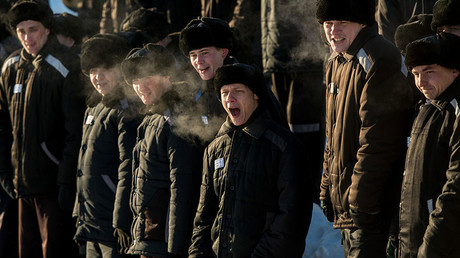Russian officials ask prosecutors to tighten control over penal colonies after torture claims

“The inspection could not find any objective proof of Dadin’s claims of actions allegedly taken against him on September 11 and 12, as well as the claims that the penal colony workers acted within their responsibilities,” reads the report presented by the council on Friday.
“We have not received any video records, and Dadin’s personal file and the time that has passed from the alleged events and the inspection prevented us from detecting any bodily harm, apart from marks on both of Dadin’s hands.”
The human rights officials noted in the document that one of the senior officials of the Justice Ministry’s Federal Service for Execution of Punishment had knowingly or unknowingly misinformed them about the length of time CCTV records are kept.
“Colonel A. Fedorov explained that CCTV records in penal colonies are kept for 30 days, and due to this fact, no records from September 11 and 12 could be presented, except for the record made by chest-mounted camera that, according to Colonel A. Fedorov’s words, should be kept for two years,” they wrote.
However, the Justice Ministry’s instructions on electronic means of guarding and surveillance released in 2006 and 2013 state that the minimum time CCTV records should be kept is one year, and chest-mounted cams – 30 days, the rights advocates wrote.
The Human Rights Council also recommended that the Prosecutors’ Office for the Republic of Karelia launch a probe into the quality of prosecutor control in the penal colony where Dadin is currently serving his sentence, as well as in other penal institutions in the region.
Ildar Dadin is currently serving an 18-month sentence, which he received in late 2015, for repeatedly violating laws regarding street protests and demonstrations. Dadin was the first person to be convicted under the new law that punishes violations with prison sentences, but prior to this sentence, he had civil charges brought against him for violating public order at demonstrations, and had been fined several times.
In early November, Russian media reported that the activist had accused the administration of the penal colony where he is serving his sentence of physical and verbal abuse. The allegations were made in a letter from the activist to his wife, Anastasia Zotova, who later published it on Facebook.
Dadin wrote that he was being repeatedly beaten, and was once “kicked by 12 men.” He also alleged that the wardens had him suspended by handcuffed arms and threatened to allow the other inmates to rape him, and claimed the governor of the colony told him he would be “killed and buried by the fence” if he complained.
The Justice Ministry launched an investigation into the scandal, and in late November, the deputy head of the Federal Service for Execution of Punishment, Valery Maksimenko, told reporters that no basis to the claims had been found. Maksimenko also said he was grateful to human rights advocates and bloggers who had followed the case for their unbiased approach and interest in the truth.
The official explained that Dadin’s physical condition has been checked by doctors from the Federal Service for Execution of Punishment, by specialists from a local civilian hospital, and by specialists recommended by the Russian human rights community. None of them found any hidden or external injuries on the activist.
Maksimenko also noted to reporters that Dadin had initially agreed to a polygraph test, but retracted his consent when it actually came to the procedure, without explaining his reasons for this.











